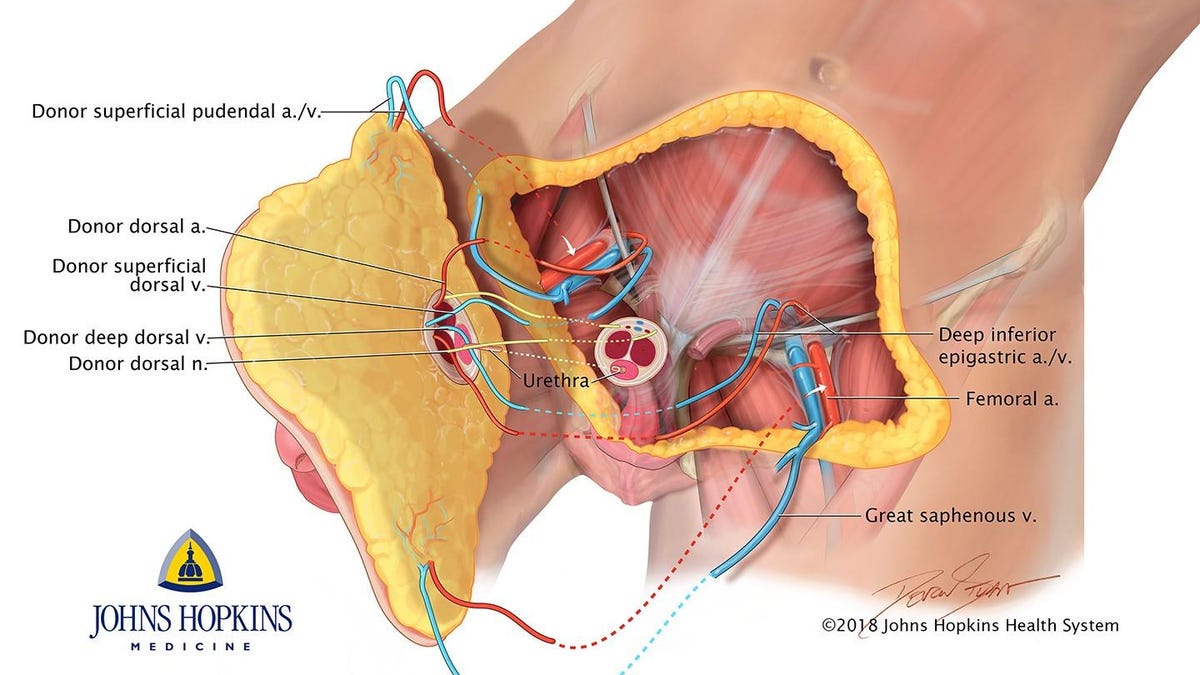Wounded US soldier gets first penis and scrotum transplant
A US combat veteran wounded by an IED is the recipient of a total penis and scrotum transplant performed by Johns Hopkins doctors during a complex 14-hour surgery.
A US soldier suffered an almost unthinkable injury while serving in Afghanistan when an improvised explosive device damaged his genitals. In a world first, doctors with Johns Hopkins performed a total penis and scrotum transplant on the veteran, who has chosen to remain anonymous.
Members of the Johns Hopkins surgery team that restored a soldier's penis and scrotum stand around a mannequin patient.
Surgeons in South Africa performed the first successful penis transplant in 2014. A man who lost his penis to cancer became the first US penis transplant recipient in 2016. The Johns Hopkins operation is groundbreaking for also involving the transplant of the scrotum.
The Johns Hopkins team consisted of nine plastic surgeons and two urological surgeons (some members of the same surgical team were responsible for a rare double-arm transplant in 2012 for a soldier wounded in Iraq). The genital operation, performed in Baltimore, lasted 14 hours and took place on March 26. The organ came from a deceased donor.
The complex surgery is called a "vascularized composite allotransplantation" and requires transplanting skin, muscles and tendons, nerves, bone and blood vessels.
"We are hopeful that this transplant will help restore near-normal urinary and sexual functions for this young man," says W.P. Andrew Lee, director of plastic and reconstructive surgery at Johns Hopkins University's School of Medicine.
Johns Hopkins shared a comment from the anonymous soldier: "When I first woke up, I felt finally more normal … [with] a level of confidence as well. Confidence … like finally I'm OK now."
The veteran is on a regimen of drugs designed to minimize the risk of tissue rejection and is expected to leave the hospital this week.


